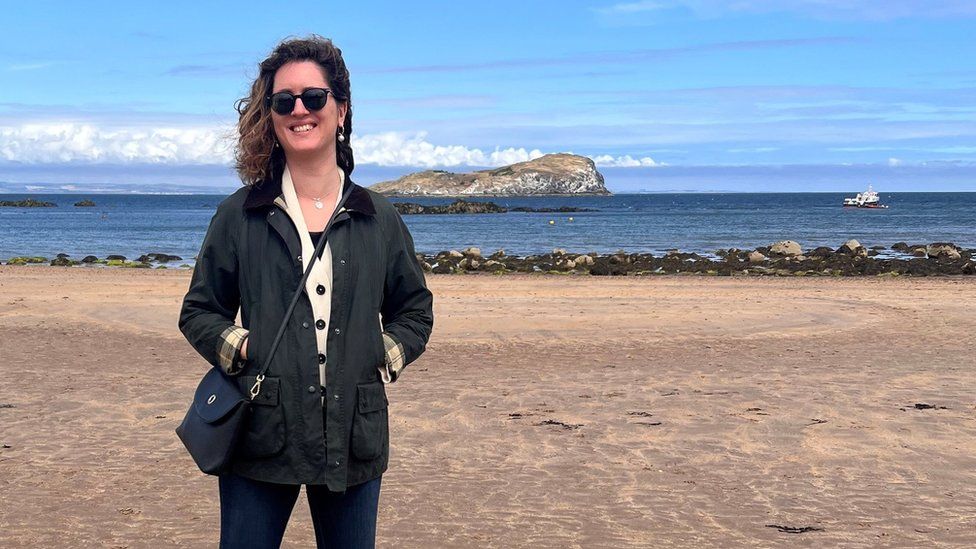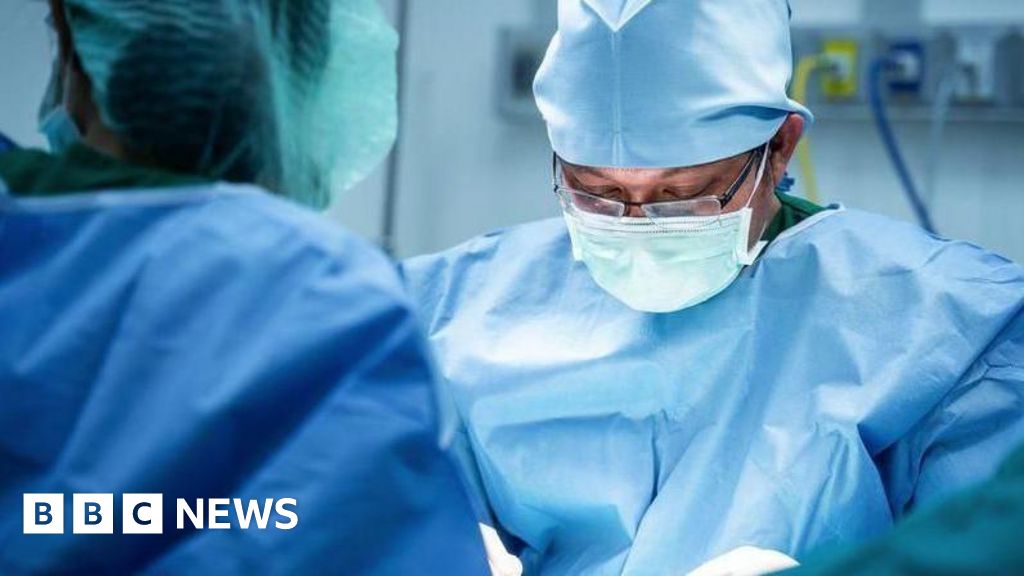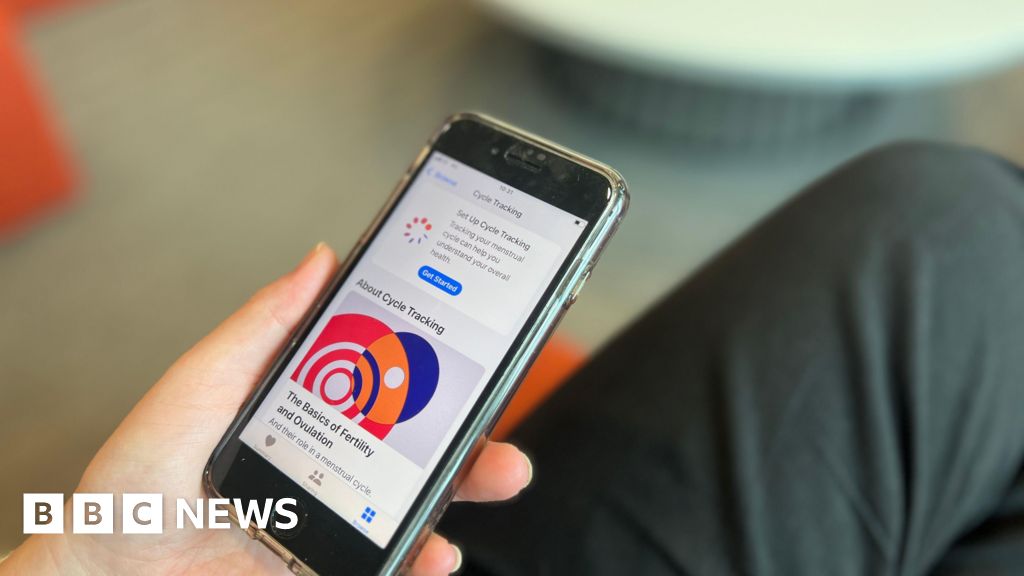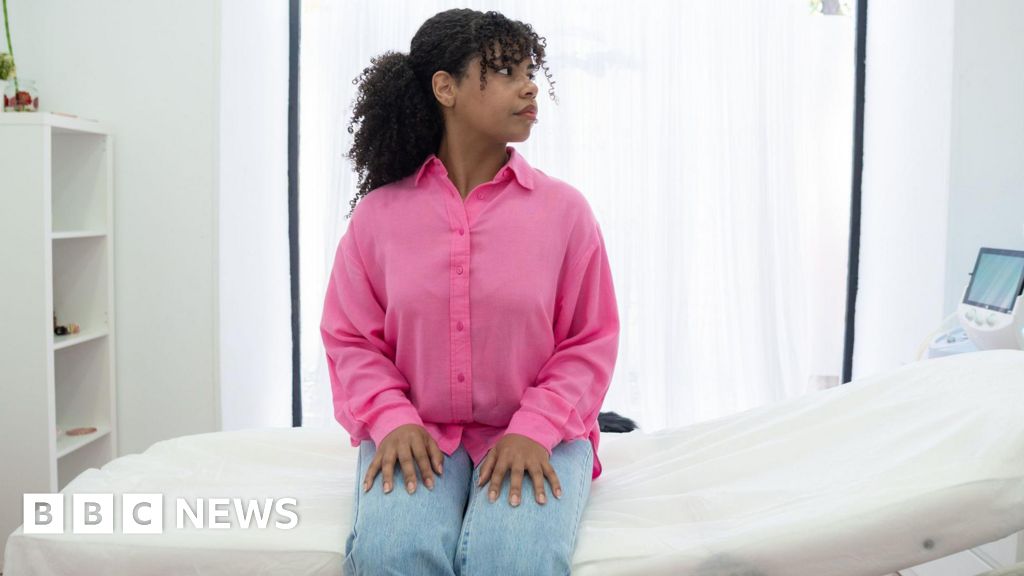ARTICLE AD BOX
 Image source, Barbara Tesio-Ryan
Image source, Barbara Tesio-Ryan
Barbara has a migraine about four times a month and it leaves her completely bedbound
By Philippa Roxby
Health reporter
A treatment for migraine attacks which dissolves under the tongue will soon be available on the NHS in what experts say is a "step change" in care.
Health experts said 13,000 people could be eligible to take it to reduce sudden and severe head pain.
Rimegepant has been recommended for adults who cannot take other medicines or do not respond to them.
A migraine charity said it brought "new hope", especially for those who suffer debilitating side effects.
These can range from vomiting to light sensitivity and sight problems, and attacks can last for up to three days.
About one in seven people is affected by migraines. They are more common in women than men, and mostly affect people aged 35 to 45.
'Nothing really helps'
Barbara Tesio-Ryan cannot speak properly or see clearly when her migraines strike without warning.
"It looks like a stroke," she says frankly, "and the pain is unreal.
"It covers the whole head. I get sick if I move too much so I have to lie down in darkness, usually for four hours."
Recovery can take a day or two, and during that time she often feels tired and confused with what she calls a "migraine hangover".
Stress can be one cause, but lack of sleep, too much caffeine and too much sun can also be triggers.
"I moved house recently and was ill for the whole weekend," says Barbara.
Migraines have affected her work as a librarian because she cannot come in when she is ill - and that happens about four times a month.
She had her first migraine aged eight and has tried every type of medicine or therapy available, including acupuncture, but nothing really helps.
"I'm really excited to try this drug - it could mean a huge change for my life."
The National Institute of Health and Care Excellence (NICE) which makes decisions on drug approvals in England, and whose recommendations are usually adopted in Wales and Northern Ireland, previously backed rimegepant for preventing migraine in adults.
Now, in final draft guidance, it says the Pfizer-made medicine (also called Vydura) is a cost-effective option for treatment of migraine attacks once they have started.
Long wait for specialists
The drug will benefit those who have not found a treatment that works and those who get terrible side effects from existing treatments, as well as people who cannot take existing treatments, such as those with heart disease.
Some people do not respond to established medicines called triptans, or find that painkillers like ibuprofen and paracetamol do not bring any relief.
At that point, people are advised to see a migraine specialist - but there are often long waits to do so.
Helen Knight, director of medicines evaluation at NICE, said: "This is the first and only NICE-recommended medicine that can help alleviate the misery of acute migraines, and may be considered a step change in treatment."
She said people had described the condition as "an invisible disability" that affected all aspects of life, such as work, mental health and social activities, and there was a "high unmet need for treatment options".
Robert Music, chief executive of The Migraine Trust, said the decision "brings new hope" by reducing the pain and length of a migraine attack.
"Migraine is an incredibly misunderstood condition that can have a significant impact on all areas of life, including ability to work, maintain relationships and mental health," he said.
About 10 million people in the UK are affected by migraines, with approximately one million having chronic migraines, which is defined as having a headache on at least 15 days in a month.
Scientists believe migraines are the result of abnormal brain activity affecting nerve signals, chemicals and blood vessels in the brain.
What causes this is not clear, but there is thought to be a genetic link for many people.
Related Internet Links
The BBC is not responsible for the content of external sites.

 1 year ago
45
1 year ago
45








 English (US) ·
English (US) ·